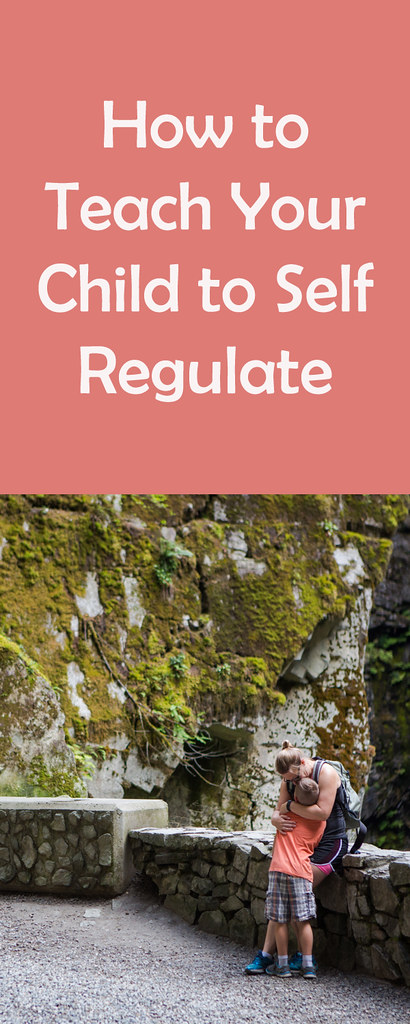The more I learn about how to deal with children's behaviour, the more I realize how little I know. Two of our children have a relatively easy time calming themselves but one does not.
When I say "calm", I don't mean being quiet or still, I mean feeling tranquil and at peace inside.
You can't tell someone to "calm down" and have them suddenly say to themselves "Ah yes, now I feel a deep inner peace". Also, when most parents want their kids to calm down they likely mean "please sit nicely and don't yell" but we want to look a step further. Dr. Stuart Shanker's book Self-Reg: How to Help Your Child (and You) Break the Stress Cycle and Successfully Engage with Life provides key information and insight into this topic of self-regulation.
This means that they will get to the point where they will identify that they are feeling stressed, be able to figure out the cause of it, and then engage in thoughts and activities to calm their body down. In order to get to develop these skills, there is a lot of work that needs to be done which starts with us helping them to regulate so that they can learn to do it on their own.
Here are the five steps to teach self-regulation:
1. We need to recognize when they are stressed (anxious, irritable, hard time sleeping, upset easily, can't pay attention etc.).
2. We need to identify the stressors (allergies, hungry, thirsty, tired, inadequate nutrition, lack of exercise, noise, lights, crowds, cold, hot, relationships etc.).
3. Help to reduce the stressors.
4. Help the child to reflect on the stressors to become self-aware.
5. We can find ways to help them feel calm. This varies greatly amongst children but often involves quite and soothing environments such as their bed or playing with a favourite toy.
At this point my son struggles with self-control and it is due to a current lack of skills. We have to go back another step to learning how to self-regulate so that the stressors can be dealt with and then self-control isn't as difficult.
How easy is it to control yourself when you are under extreme stress?
Ever been late to get somewhere and then you get lost and can't find your way? Then add in that the kids are fighting and screaming in the van at the same time and someone has to pee? How calm and kind are your words? How self-controlled are you? You will be able to get through it because you have acquired skills over the years. You learn you can pull over and find a bathroom, get directions, make a phone call, give the kids snacks etc. You likely have the tools to get through it but you weren't born with those; it will require a lot of your energy and self-regulation.
Dr. Shanker recommends moving from being irritated with our kid's behaviour to being inquisitive about the causes, from changing your focus on discipline to listening, and finally instead of reacting to help reach a state of calm. When we are calm we help them achieve it as well. Another aspect I hadn't considered before is how to build empathy in our kids:
They will develop their empathy when they experience it.
When you learn to understand and share the feelings of others, this will also help with self-regulation.
As parents, we can feel a lot of stress in parenting especially when our kids struggle with self-regulation. From having to teach appropriate social behaviours to sharing anxiety with your child to the competitive parenting out there to figuring out how to navigate topics like technology usage and nutrition, there is so much to figure out in regards to how to parent each child because they're all different! Dr. Shanker recommends understanding your own stressors and to take things slowly.
If I could offer one piece of advice it would be the first step: figure out what the stressors in your child's life are.
They likely won't say "I'm so stressed out because there's too much noise!"–identifying it straight out is difficult for them. For our son, we realized that seasonal allergies played a role in the underlying stressors for him and treating that helped to relieve some of the irritation he was constantly dealing with. Although this is just one of many stressors it is a start. And finally, when you are feeling at a loss and want to yell, remember, responding calmly helps to restore a sense of calmness–this is something I struggle with.
If you have a child who struggles with self-regulation, I do recommend this book and hope that you find the tools you need in order to help teach your child how to regulate on their own. Thoughts?
Love,
Louise
Please pin for later if this is something you would like to come back to.
.jpg)



No comments:
Post a Comment